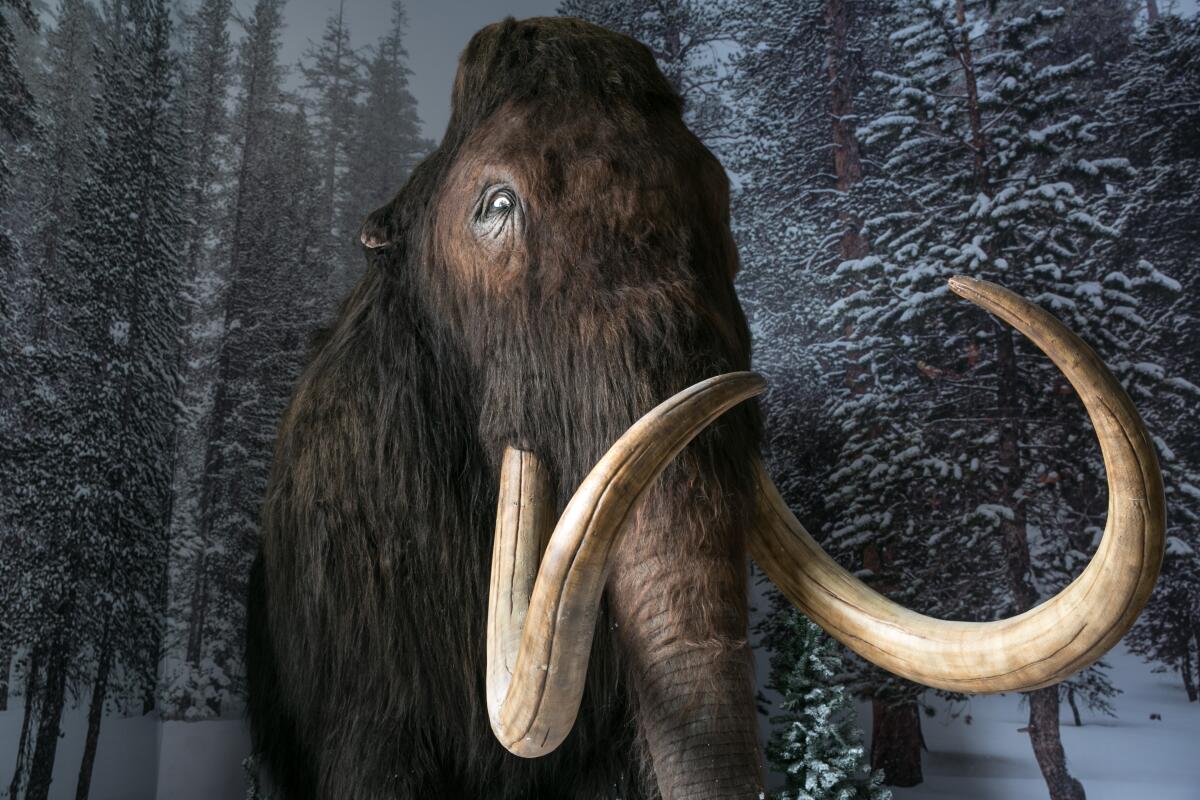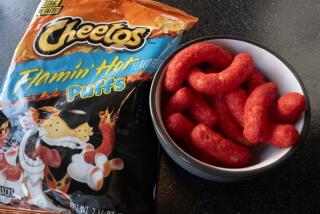The woolly mammoth is back — in the form of a meatball

- Share via
A woolly mammoth meatball has been created from the animal’s DNA — 4,000 years after the beast went extinct.
The dish is made of cultured meat, grown in labs from animal cells. It used the DNA of the woolly mammoth, together with fragments of DNA from an African elephant, which is the animal’s closest relative still alive today.
Vow, the Australian company that created the food, made the meat by isolating genetic material found in mammoths that gives flavor to red meat and filled in gaps with DNA from an elephant. The company said it hopes that the project will challenge people to reassess the climate damage caused by cows and other livestock, as it revealed the product at the Nemo Science Museum in Amsterdam. Beef is the most climate-intensive food.
This isn’t the first time that DNA from extinct animals has been used for food production. In 2018, a company created gummy bears with gelatin from the DNA of a mastodon, the extinct elephant-like animal.
Vow is also conducting trials using cells from other extant but nontraditional animals, such as crocodile, in its food. The company, whose backers include an investment vehicle of billionaire Mike Cannon-Brookes, says that it can select for better taste and nutrition by growing food from a wider range of species.
No one has brought a woolly mammoth back from extinction, but a team of scientists has brought back a woolly mammoth gene, discovering that it and others unique to the long-vanished elephant-like beasts probably helped the animals withstand the harsh cold of the Arctic tundra.
The meatball started with an idea from Bas Korsten, the chief creative officer of advertising at Wunderman Thompson. Korsten also came up with the idea behind the Next Rembrandt, a 2016 project that enlisted AI to create a new painting in the style of the Old Master.
Vow is trying to create “entirely new food experiences,” said James Ryall, its chief scientific officer. “Rather than simply replicating existing products, this technology offers us the opportunity to create something truly unique and better.”
Founder Tim Noakesmith added that new technology meant that food no longer needs to be “the way we know it.”
The company said it raised $49.2 million in November from investors including Prosperity7, a $1-billion venture of Saudi Arabia’s state oil company.
More to Read
Inside the business of entertainment
The Wide Shot brings you news, analysis and insights on everything from streaming wars to production — and what it all means for the future.
You may occasionally receive promotional content from the Los Angeles Times.










